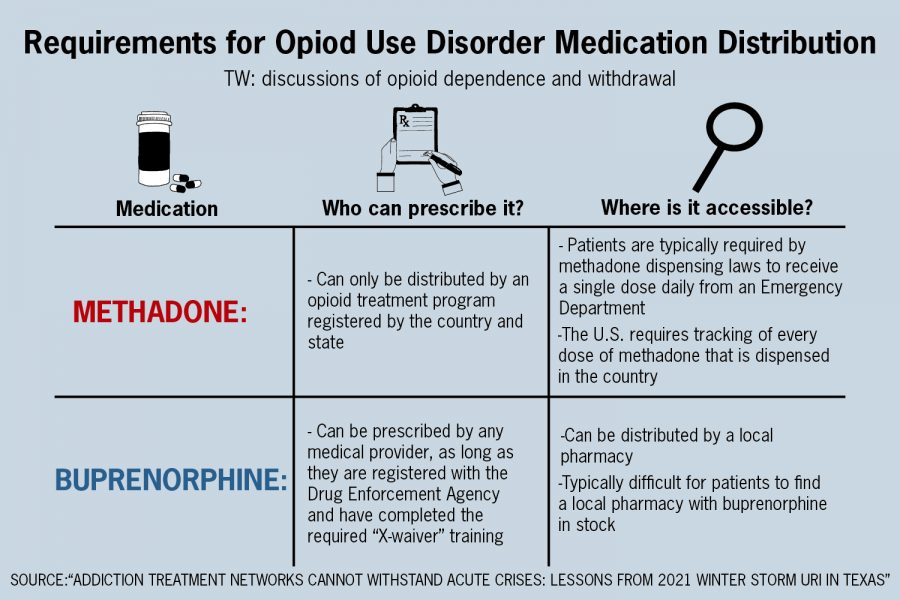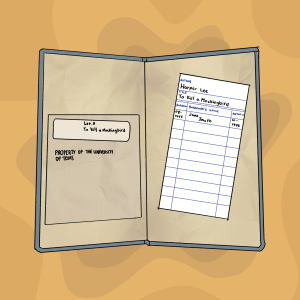Commentary co-authored by UT faculty highlights inaccessible substance use disorder treatment during Winter Storm Uri
April 9, 2021
Winter Storm Uri prevented individuals with substance use disorders, specifically opioid use disorders, from receiving proper treatment, according to a piece published in the National Academy of Medicine March 29.
The piece, co-authored by faculty from the Dell Medical School, College of Pharmacy and other medical experts, found that opioid treatment program clinics closed during the winter storm, preventing them from dispensing methadone and buprenorphine — medications used to treat opioid use disorders. Emergency departments and pharmacies became some of the few places where patients could receive the medications, but those places were also overwhelmed during the storm, according to the report.
Richard Bottner, an assistant professor in the Department of Internal Medicine at Dell Medical School who co-authored the paper, said the under-resourcing of Texas’ substance use medicine community contributed to the challenges that substance abuse and opioid use disorder patients faced during the storm.
“The infrastructure in general maybe wasn’t the strongest from the outset, and then you add on this sort of acute disaster to it,” Bottner said. “There’s only so much weight you could put on the bridge before it crumbled, and that’s what happened for many of our patients.”
Sorina Torrez, a junior in the College of Pharmacy and president of the UT chapter of the College of Psychiatric and Neurologic Pharmacists, said the organization’s focus is to educate pharmacy students about substance use disorders and mental health.
“Our goal is to know what resources are available, so that as future pharmacists, whenever someone comes to us with an issue, such as having a substance use disorder or mental health condition, we are equipped to either help them or steer them in the right direction in terms of providing resources and helping them find what’s available to them,” Torrez said.
Kelley White, a member of the College of Psychiatric and Neurologic Pharmacists and director of the initiative Operation Naloxone, said the initiative aims to educate the public about opioid overdoses and provide training for how to respond to these situations.
White, a junior in the College of Pharmacy, said a questionnaire about substance use could be a way to support those who struggle with substance use disorders and help lessen the stigma that surrounds them.
“Things like asking about substance use and not making it like, ‘Well we’re gonna report you to the police,’ or any of those things people might fear … would go a long way in terms of helping people, because then at least we know the problem exists,” White said.












